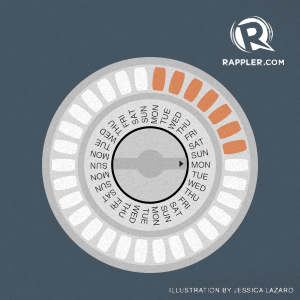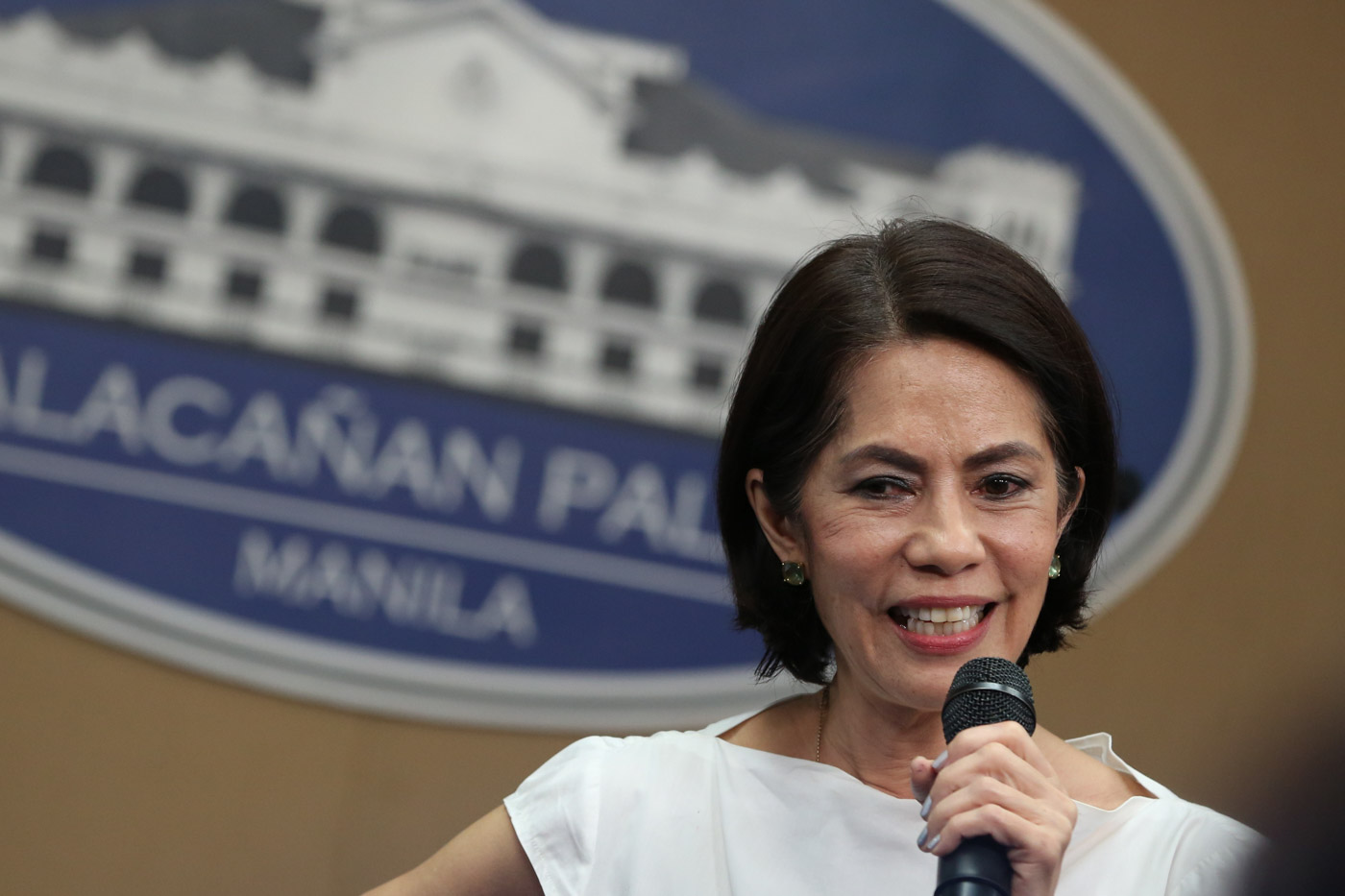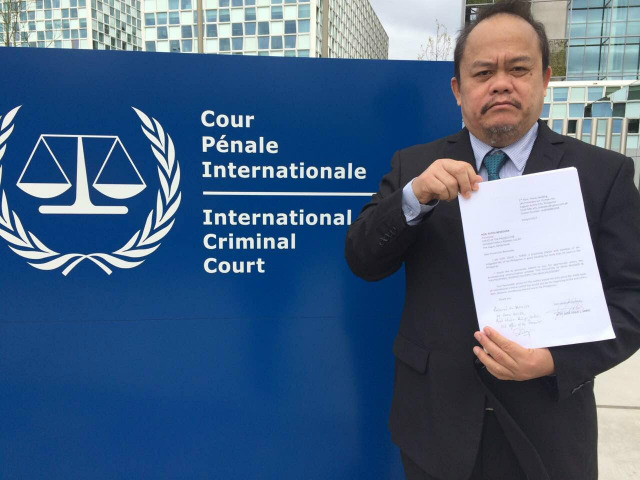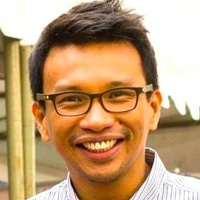![]()
To many, Regina Paz “Gina” Lopez is one of the bright lights in the Cabinet of President Rodrigo Duterte. Now, if the powerful mining industry has its way, this light could be extinguished on May 2 or 3, when the Commission on Appointments (CA) will convene once more to decide whether or not to confirm her as secretary of environment and natural resources.
To block Lopez, the industry has mobilized its friends within the administration, foremost among whom is Finance Secretary Carlos “Sonny” Dominguez. At a meeting of the Mining Industry Coordinating Council (MICC) on February 9, 2017, Dominguez sponsored a resolution authorizing the MICC to conduct an evaluation of all mining operations in the country. The proposed investigation was obviously meant to supersede and reverse an exhaustive study already conducted by the Department of Environment and Natural Resources (DENR) that had resulted in the closure of 22 mines, suspension of 4, and the issuance of show-cause orders to 77 others.
Apparently not fully aware she was being snookered into endorsing a compromising document at the time, Lopez attached her signature to the Dominguez-inspired resolution. Then, as one DENR executive describes it, Dominguez went on to “wave the document as proof that Lopez admitted ‘violating due process’” in conducting the DENR study and ordering mine closures and suspensions based on it at a CA confirmation hearing on Lopez on March 14. The finance secretary’s openly discrediting a fellow Cabinet member in a CA session was an unprecedented breach of intra-Cabinet etiquette, all the more so since Lopez was not there to defend herself.
Dominguez’ attack on Lopez followed her retracting her prior approval of the MICC resolution. Feeling she had been duped, Lopez disowned her initial endorsement of the memo, writing to President Duterte on March 6, 2017 that though she had at first concurred with the MICC resolution, she had had strong misgivings about it and had come to the conclusion that the proposed MICC review “is not only [not] authorized by EO [Executive Order} 79 and its IRR [Implementing Rules and Regulations] but constitutes an undue usurpation of the authorities and functions of the DENR.” There was no need for the MICC study, she argued, because “the DENR has…completed the required review of existing mine operations.” Moreover, “the P50 million budget for the review is better spent for the welfare of the people affected by any closures and for alternative employment projects on their behalf.”
The finance secretary is more than a friend to the mining industry. He was a director of the mining and energy conglomerate Alsons Consolidated Resources from 1995 to 2016. While he claims to have divested himself of his shares in the company in 2016, his brother Paul continues to be a central figure in the company and is heavily involved in the leadership of the consortium behind the controversial Tampakan copper-gold project in South Cotabato.
Nor is Dominguez a simple Cabinet appointee; his friendship with Duterte goes back to their high school days at the Ateneo de Davao and he was the chief fundraiser and campaign finance manager of the Duterte for President Campaign.
But then neither is Lopez just another Duterte appointee that can be dusted off, as was done to Perfecto Yasay Jr, the tainted secretary of foreign affairs nominee who was denied confirmation by the Commission on Appointments for lying about his citizenship.
Lopez represents a cause, and one that Duterte apparently supports. The President has repeatedly publicly endorsed Lopez, saying he admires her singlemindedness and “passion” when it comes to curbing mining, which, in his own words, has brought “environmental devastation,” especially to Mindanao. He has time and again said it’s “over” for Big Mining and told the miners that “we can live without the P70 billion in taxes that we get from you.” Even among those who strongly condemn Duterte’s policy of extrajudicial execution of drug users, there are those, like the author, who concede that he seems to have a progressive agenda when it comes to mining.
Gina’s bliltzkrieg
![ADVOCATE. In this photo, Environment Secretary Gina Lopez talks to Malacañang reporters during a press briefing on February 9, 2017. File photo by Malacañang Photo]()
Duterte might not have anticipated, however, how rapidly Lopez would move to close down mines that were not following the law, in particular Executive Order 79, the comprehensive interim code issued by the Aquino III administration that governs mining until new legislation is passed. Her sweeping blitzkrieg on mining has not been matched in any other agency, and it left the miners stunned.
Lopez is not anti-mining; she simply wants radical reform in an industry that has severely damaged the environment, especially watersheds, and walked away from their contractual obligations to rehabilitate and compensate the areas and communities negatively affected by their operations. Her case for stricter regulation is based on the argument that the widespread environmental and social costs of mining far outweigh the less than 1 percent the industry contributes to GDP and the less than 0.4 percent to employment. Indeed, one month’s worth of OFW remittances is greater than the annual contribution of mining to the Philippine economy.
Reform will have to include investment and tax laws because, as one of her close associates says, “It greatly pains her to see a mine closing operations after a mine life of 7 years without paying income taxes because it was able to secure a tax holiday of 7 years!” The tax holiday loophole and other incentives have been abused not only by Filipino-owned firms but also by foreign investors.
One of the firms receiving a suspension order from Lopez is OceanaGold, a foreign-owned enterprise accused by Nueva Vizcaya Governor Carlos Padilla of leaving his province “with crumbs and almost zero share” in revenues, enjoying as it did a tax holiday for 6-8 years out of the 17 years of mine life.
Another key foreign-controlled firm, Silangan Mining Corporation, got a show-cause order from the DENR for a project in Surigao del Norte that is in a watershed. Silangan is controlled by Philex, which, in turn, is controlled by the Indonesian Anthoni Lim group that is fronted by business personality Manny Pangilinan, a bitter enemy of Lopez.
OceanaGold and Philex are members of the Chamber of Mines of the Philippines, which has formally opposed Lopez’ confirmation and engaged in full-throated scaremongering, warning the president that the Philippines could lose as much as $16 billion in compensation and damage payouts should interests whose mines are closed or suspended bring their case to international courts and win.
Professors and students on the frontlines
The Lopez blitz has left the industry scrambling for counter-arguments.
Sensing that academics could make a better impression in televised hearings than corporate executives, the industry has deployed geology students and professors, especially from the National Institute of Geological Sciences (NIGS) and the University of the Philippines’ Department of Mining, Metallurgical, and Materials Engineering (DMMME).
Some observers feel this was unfair manipulation of students and academics since the mining industry provides the bread and butter for these professionals and thus they cannot be expected to support reforms that could result in diminished employment opportunities. As one student admitted, “Geologists are the ones who are facilitating the 1st stage of Mining which is Exploration. Sila ang unang aakyat sa bundok para tingnan kung viable ba yung area for Mining, e.g., magdedetermine ng grade ng ore deposit. If such mining permits and agreements will be cancelled, walang pagtratrabahuhan ang mga ga-graduate.”
That people from the UP mining/geology academic complex would play a prominent role in the assault on Lopez does not surprise Leo Jasareno, one of Lopez’ main advisers. “By the nature of their profession,” he says, “geologists find professional opportunities in the mining industry. Thus, they render services to that industry. The very classic example is Dr. Carlo Arcilla. His CV will easily show that he has worked a lot for the mining companies, with very good pay.”
Discrediting mining audit
In their counterattack, the mining experts have deployed a number of arguments.
On the environmental front, for instance, they have tried to downplay the enormous damage done by mining to watersheds by promoting a very narrow definition of a watershed and arguing that government could not act to prevent or limit mining operations in those sites that had not yet been proclaimed watersheds by the state when a permit was granted to mine them. In other words, if a mining corporation obtained a permit before an area was declared a watershed, then the corporation had “prior rights.”
This legalistic approach to watersheds, says responsible-mining advocate Jaybee Garganera, “is short-sighted and detrimental to national environmental security.” The watershed issue has become a matter of bitter contention since 75 of 77 MPSA’s (Mineral Product Sharing Agreements) issued show-cause orders were for being in watersheds and could likely impair the ecological and social functions of watersheds.
DENR Undersecretary for Legal Affairs Maria Paz “Ipat” Luna says that, in fact, had the miners been assessed on the full range of negative environmental impacts, there may have been more closures and suspensions in the recent mining audit. There wasn’t much time for in depth investigation especially into ecosystem services and biodiversity impacts, but just on legal compliance they were already found wanting. If the teams had more time, it is not impossible to expect that there will be more found out.”
Not surprisingly, the industry has lost no time in discrediting the DENR mining audit, alleging among other things, non-transparency, bias, an unfair focus on mining when biodiversity loss may be related to other activities like deforestation, and “ambiguity” about what Lopez means by responsible mining, which one geology student caricatured as the “Gina Standard.”
There is very little basis for these accusations, say those involved in doing the audit. There was great care to cover all dimensions relevant to mining by having a diverse group of scientists and other professionals carry it out. As one of those who organized the audit asserted, it “was not done solely by the Mining and Geosciences Bureau (MGB). It was done by a multi-disciplinary group composed of the following: MGB, Environmental Management Bureau, Forest Management Bureau, Biodiversity Management Bureau, Ecosystem Research and Development Bureau, DENR Regional Offices, Dept of Agriculture, Dept of Health, Social Action Center and Civil Society Organizations. No single person could have influenced the results of the audit given this multi-disciplinary nature of the audit teams.”
As for process, DENR lawyer Luna said that Finance Secretary Dominguez’ claim of lack of due process has little merit and can only come from someone who has not read the detailed audit reports. “The process took eight months,” she said, “with multi-stakeholder teams (16 of them) going down to the field and gathering information. Each team then filed a report which was sent to the mining company with a show cause order for them to reply. They replied (some with voluminous documents) and all the reports and replies were reviewed by a Technical Review Committee in the DENR. These, along with community reports and complaints, her [Lopez’s] personal inspection and meetings with communities and with mining companies, became the bases of her decisions.”
Luna concedes that there were some disagreements between Lopez and the Technical Review Committee on the penalties imposed on those who failed the review, with Lopez generally favoring the heavier penalties. But the old mining law specifies penalties that are so light they have little deterrent effect.
Moreover, a Secretary has wide discretionary power and, in general, “[v]iolations of any conditions of the MPSA [Mineral Production Sharing Agreement] can result in its suspension or cancellation by the Secretary.” There is a process of appeal to the Office of the President, and some of those companies closed or suspended have already taken this route. That they have done so shows that the charge of violation of process does not hold water, she says.
Amateur among experts?
With little support – either on substantive or procedural grounds – for their complaints against a tough crusader, the industry has taken to spreading personal, ad hominem attacks, the main aim of which is to paint Lopez as an inept amateur in a game of professionals. While most acknowledge that the unorthodox scion of one of the country’s richest families, who spent 11 years living in voluntary poverty in Africa as a religious Ananda Marga missionary, is motivated by good intentions, they say mining is a complex field that only experienced professionals can really understand.
In this regard, the comments of one student from UP’s DMMME are Illuminating: “She is a former yoga enthusiast, Pasig River rehabilitation head (na wala namang nangyari), and no college degree, tapos bigla kang magiging Sec ng DENR? One of my professors in NIGS said he gets too emotional when they talk about Gina kasi my PhD siya tapos ganun na lang ni Gina sirain yung Mining Industry. At least naman lang kahit sinong taong may idea man lang sa Mining yung pwedeng maging DENR secretary or at least man progressive mag-iisip ung inappoint in Duterte.”
Yet this image of Lopez directly contradicts the impression she has given at the CA hearings. “Her powerpoint presentation was very professional. I was impressed,” admitted one congressman close to the mining industry. One DENR insider said that “Sec Lopez has seen more mines than most, if not all, of the past DENR Secretaries. The only DENR Secretary that may have seen more mines was Sec Horacio Ramos but this is because he is a mining engineer.” While she might not have a PhD in geology, it is difficult not to acknowledge that Lopez has done her homework.
Gina’s 'Rasputin'?
When miners are not attacking Lopez, they are lashing out at one of her key advisers, Leo Jasareno, whom they paint as Lopez’ Rasputin, the half crazed mystic who held the ear of Russia’s last czarina.
“Practically all the anti-Gina witnesses at the CA hearings attacked Leo,” said one DENR official. The reason for this hostility, said another, “is the perception all the knowledge of Sec Lopez on mining comes from him, so that if he is removed or destroyed, Sec Lopez will run out of ammunition against the mining companies. As one miner said, remove Leo Jasareno and Gina Lopez will fall.”
Jasereno is controversial. The miners hate him but neither does he have an easy relationship with the NGOs critical of mining, who find dealing with him bumpy. They acknowledge, however, that there are few who know the industry better than he does, meaning not just its technical side but also its seamy side.
Some miners have accused him of corruption, even of being the “bagman of [former] Secretary [Ramon] Paje.” Lopez has told them that if they have any proof, they should give this to her, so she can fire him as her consultant. So far, none have taken up her challenge.
Jasareno was head of the strategic Mining and Geosciences Bureau (MGB) of the DENR before Duterte replaced him last August with Louie Jacinto. The move was seen by many as a case of Duterte placating mining interests, among whom Jacinto, who used to be regional director of the MGB Davao region, is popular. Since Jacinto was also the former City Planning and Development Officer of Duterte in Davao City, the move was interpreted by others as Duterte’s move to keep an eye on Lopez, who, the miners had warned the President was a wild-eyed radical who would kill the industry.
Jasareno was, however, retained by Lopez in another capacity, his current designation being “Special Assistant for Mining.”
Asked why he was resented so much by the industry, he surmised that probably the key reason was that during his term as MGB Director under the previous Aquino administration, “many policies and actions were pursued which were not popular with the miners.” This included, he claimed, the issuance of EO 79, which “imposed a moratorium in the grant of mineral agreements until Congress has passed a law increasing the share of Government from mining, and declared No-Go Zones that expanded areas closed to mining, stopped the black sand mining in Cagayan, Ilocos Sur, and other parts of the country, cancelled more than 20 mineral agreements, suspended 14 large-scale mining operations… and required all operating mines to secure ISO 14001 certifications.” All of these actions, Jasareno asserts proudly, “were unprecedented and hurt the miners.”
The man, it is clear, shares Lopez’s passion to discipline a wayward industry, and is the kind of independent-minded guy that acts as a natural magnet for charges of bias, arbitrariness, egotism, bad judgment, and corruption. With such determination for reform wedded to his intimate knowledge of the industry, one can understand why Jasareno is seen by the miners as a dangerous man. Indeed, with the hundreds of billions of pesos at stake, one wonders how he has managed to stay alive up to now.
Decision point
The confirmation process, everyone will tell you, is one where politics, not merit, is in command. In this arena, where many speak with forked tongues, it is difficult to know until the vote itself who is your friend and who is your enemy. Here the very strengths of Lopez in dealing with the miners may become points of vulnerability in relating to politicians.
For instance, a more ambitious or cautious bureaucrat would most likely have waited for his confirmation before making such a decisive move as issuing some 103 closure, suspension, and show-cause orders. Or he would have devoted time to lobbying the members of the CA.
“Yasay visited me several, maybe four times,” said one congressman on the Commission, referring to the Duterte nominee who was ultimately turned down for the post of Secretary of Foreign Affairs. “Gina did not request even one meeting with me, and I doubt if she did with the others,” he commented, saying this not because he was peeved but out of admiration. Likewise, during the second round of hearings on her confirmation in March, Lopez turned down a strong request by the Commission that she postpone her departure for the US so they could act on her confirmation. She refused, telling the CA she had to attend a retreat, communicating in no uncertain terms that her spiritual regeneration took precedence over ambition.
With less than two weeks remaining before the May 2 or 3 meeting, when the CA is likely to decide on Lopez’ fate, the only certainty as to the outcome, say observers, is that the vote will be close. Senator Loren Legarda says “Hati ang Senado. Hati rin ang House,” referring to the numbers game among the 13 senators and 12 congresspersons that compose the Commission.
There are, however, two developments that could affect Lopez negatively.
Counting the votes
One is the decision of the House contingent, which is perceived by some to be one where pro-mining votes have the numbers, to adopt a rule that its members would vote in the full Commission as a bloc for the majority position that emerges from their caucus. The Senate members have not adopted this rule.
Another ruling that could have more of a negative than a positive impact on Lopez’ chances is the Commission’s adoption of the three strike rule, that is, deferment of an appointment – what the CA calls a bypass – can be done only three times, after which a presidential nominee will no longer be considered.
Senator Panfilo Lacson thinks the rule is not retroactive, in which case, Lopez, if bypassed again, will still have two chances. If a majority, however, interpret the ruling to apply retroactively, a failure of the CA to rule on Lopez’ confirmation on May 2 or 3 would, in effect, kill it.
Civil society advocates and many DENR people are especially concerned about the House side of the equation. They claim that there are two clear cases of conflict of interest.
One involves Congressman Ronnie Zamora, the vice chairman of the CA, whose brother, Manuel Zamora, is a major owner of Nickel Asia Corp, the country’s biggest nickel miner, with five nickel mines. One of these mines failed in the DENR’s mine audit and was served with a closure order. The other relates to Congressman Wesley Gatchalian, whose family owns Wellex Mining Corporation, which also failed to make the grade and also got a closure order.
Both within the DENR and civil society, there is strong sentiment that the two should inhibit or “recuse” themselves from the deliberations of the CA. (Attempts by the author to reach both congressmen, with whom he had good working relationships when he was Congress, to ask them whether they thought this position was justified were unsuccessful.)
Will he or won’t he?
What everyone agrees on is that President Duterte will be the decisive actor.
A DENR insider says the feeling within the agency is that “the President fully supports Sec Gina but he is surrounded by many officials who are supportive of the miners, and in many times these officials act without the knowledge of the president.”
This assessment seems to be borne out by Duterte’s remarks when asked about whether he continues to support Lopez. In one of his latest statements, he said, ““You cannot ignore the cries of Gina Lopez.” He asked the Commission on Appointments, “Tingnan nilang mabuti [“They should look closely [at what she’s saying”]. She would show you how devastated the environment is.” He said he ignored the requests of classmates for him to call Lopez and tell her what to do.
More than publicly stated support is needed, however, if Lopez is to be confirmed. In a close fight, personal lobbying members of the CA by the president will spell the difference. As one pro-mining member of the CA told me, “If the President of the Philippines were to personally call me and ask me to vote for Gina, do you think I would be able to refuse? Would you?”
Break-up or compromise?
The reality is that between Lopez and the massive firepower of the mining industry, it is only Duterte who can tilt the balance in Lopez’s – and the environment’s – favor. But that would mean his breaking with Dominguez and other members of what one might call the “Mindanao Mining Mafia” that played such a vital role in his reaching the highest post in the land.
But, as the Neil Sedaka song goes, breaking up is hard to do…either with Dominguez or with Lopez.
And as the countdown to confirmation day begins, Malacañang might be trying to work out some sort of compromise between Dominguez and the miners and their nemesis. A high-level source says that the latest development is that Lopez has agreed to the controversial MICC review proposal, “but on condition that this does not encroach on the authority of the DENR.”
If true, would the quid pro quo be Lopez being confirmed as Secretary? And how would such a deal affect Lopez’ ability to curb the miners in the future? We might have our answers on May 2 or 3. – Rappler.com
Walden Bello was co-author of the Mineral Management Bill in the 14th and 15th Congresses. He made the only recorded resignation-on-principle from Congress in March 2015 owing to principled differences with the Aquino III administration. He is the author or co-author of 20 books, the latest of which is State of Fragmentation: the Philippines in Transition. He is currently International Adjunct Professor at the State University of New York at Binghamton.
![]()
 I have been doing a lot of radio and TV interviews these past days, especially with provincial radio stations hungry for analysis, on the De Lima case. Below are my propositions:
I have been doing a lot of radio and TV interviews these past days, especially with provincial radio stations hungry for analysis, on the De Lima case. Below are my propositions:
 These remarks were delivered at a forum on the EDSA People Power Revolution at the School of Economics, University of the Philippines, Diliman, on February 24, 2017.
These remarks were delivered at a forum on the EDSA People Power Revolution at the School of Economics, University of the Philippines, Diliman, on February 24, 2017.
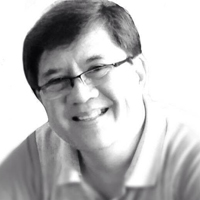 I thought that I would be applauding when this day would come. After all, I was full of loathing for Leila de Lima when she all but snubbed the Supreme Court, shoved her own reading of law and procedure in the face of the President who had plucked her from a rather lackluster election law practice for the Commission on Human Rights, instructing her minions at the airport to pay no heed to the Supreme Court. In those unfortunate days, Leila was very powerful and highly favored. She was PNoy’s lackey. And of course, the tide has turned, as it is always bound to turn. Those who want to play God had better learn this well: that their pedestals have a life-span of only 6 years!
I thought that I would be applauding when this day would come. After all, I was full of loathing for Leila de Lima when she all but snubbed the Supreme Court, shoved her own reading of law and procedure in the face of the President who had plucked her from a rather lackluster election law practice for the Commission on Human Rights, instructing her minions at the airport to pay no heed to the Supreme Court. In those unfortunate days, Leila was very powerful and highly favored. She was PNoy’s lackey. And of course, the tide has turned, as it is always bound to turn. Those who want to play God had better learn this well: that their pedestals have a life-span of only 6 years! 
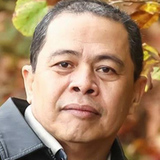

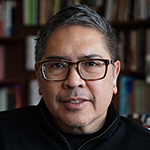


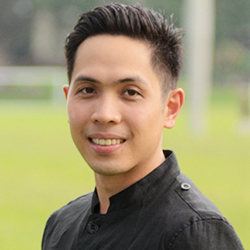
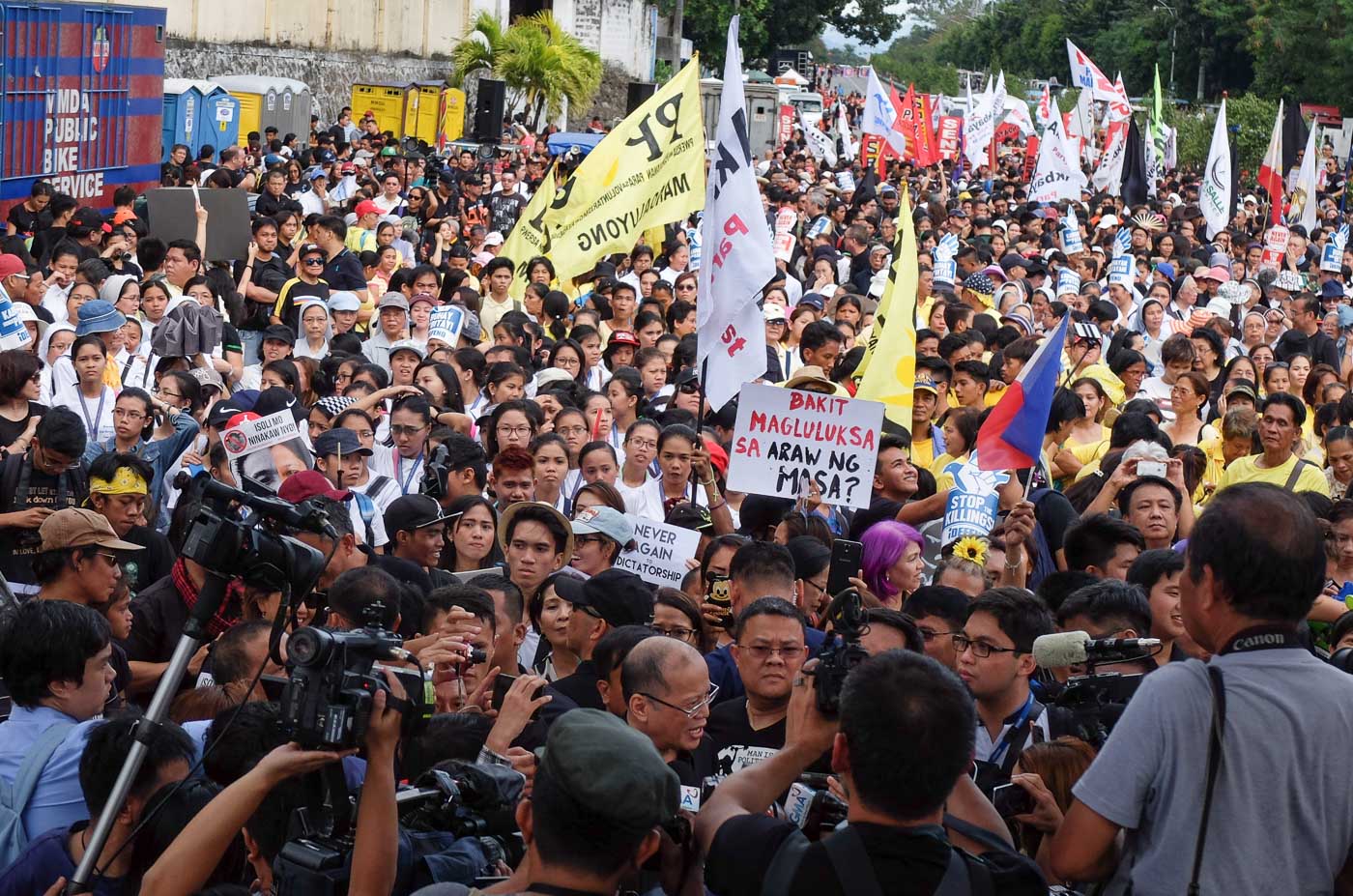

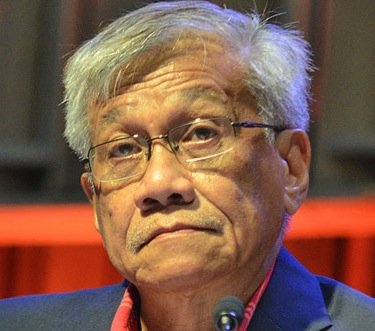



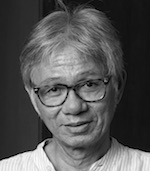


 F
F


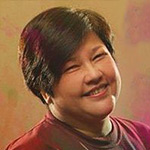

![[Dash of SAS] Ana Santos](http://static.rappler.com/images/ana-santos-150.png) If you tried to buy your birth control pill and were told that it’s out of stock, get ready for the possibility of contraceptives being out of stock – permanently.
If you tried to buy your birth control pill and were told that it’s out of stock, get ready for the possibility of contraceptives being out of stock – permanently.